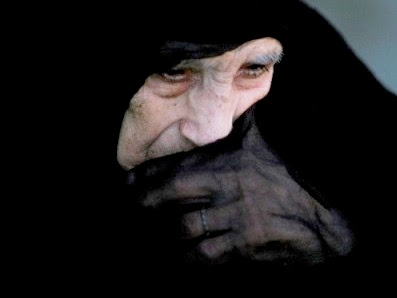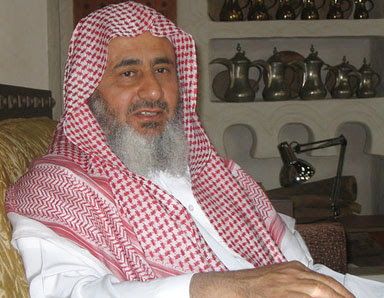But before the arrival of the British, the Portuguese had appeared at Calicut with Vasco da Gama discovering the sea route to India in 1498. In fact, Portugal had begun its colonial expansion in the early fifteenth century and had taken over vast areas in West Africa and South America. Goa and some other areas in southern and western India, too, came under its control. With their ascendance, the Portuguese language also gained prominence and it began exerting its power to influence other languages. Today it is the national language of both Portugal and Brazil.
The influence of the Portuguese language on Urdu, Gujarati and Konkani, a dialect of Urdu spoken in southern India and around Mumbai, is reminiscent of the times when the southern and western Indian shores came under a European power that declined with the rise of the British. Moulvi Abdul Haq is perhaps the first scholar to have mentioned the words borrowed from the Portuguese language by Urdu. His article on the subject appeared in the July 1949 issue of the quarterly Urdu. A little later, Dr Muhammad Umer in his book Urdu mein dakheel eurapi alfaaz (1955) elaborated the issue. Here are a few of such words and this writer has obviously drawn heavily on the two sources mentioned above.
The mango season has just begun and when you enjoy Alfonso, a variety of mango, don’t forget that the word is a variant of Portuguese aafonsa. In some south Indian languages it is also called hapus or aapus. Another fruit favoured by many is pineapple. In Urdu we call it ananaas but the word has been borrowed from Portuguese. Pineapple is native to South and Central America and the Portuguese brought it to India with them. Just as so many other things borrowed from other cultures have done, pineapple, too, brought its name with it. Its name was nana in the native language. Spaniards called it pinas and Portuguese ananaas. A kind of orange is known as Santra or sangtra in Urdu. The fruit, brought to the subcontinent by the Portuguese, is named after Cintra — a place near Portugal’s capital Lisbon — famous for the product. Papaya, known as papeeta in Urdu, is of Caribbean origin from where it found its way into Portuguese and then into Urdu.
Almaari, an Urdu equivalent for a chest of drawers, is from Portuguese armario. To keep an almaari safe, you must lock it and secure the chaabi, or key. Kunji is another word for ‘key’ in Urdu and is still preferred by some over chaabi because chaabi sounds alien to them, since it has its origin in Portuguese chave, meaning key. In some west Indian languages such as Gujarati, even today a key is called chavi, which is closer to the origin.
Angrez, or an Englishman, a common word in Urdu, is from Portuguese ingles. An interesting derivative is angrezan and angrezni, meaning an Englishwoman. Another innovation is angreziyet or ‘Englishness’, all originating from the same Portuguese word ingles.
In Urdu, aya means a nanny or a female attendant on children. Its origin is from Portuguese aia, a fact verified by John T. Platts in his A dictionary of Urdu, classical Hindi and English.
The safety pin is called alpin or aalpin in Urdu and it entered the dialects of southern India and then Urdu through Portuguese word alfinete. A similar-sounding word alfin still exists in Gujarati and Konkani, giving a clue to the source. In Urdu istari is the flat-iron used to iron out wrinkles in clothes. Istari is derived from a Portuguese word estirar meaning stainless iron.
Bucket is baalti in Urdu and the origin is Portuguese balde and a similar-sounding word is still in use in some subcontinental dialects to denote ‘bucket’. A priest or chaplain is called paadri in Urdu which is simply ‘padre’ in Portuguese and English as well. Padre literally means ‘father’ but then ‘father’ too is used to address a priest. Padre reminds one of church and a church in Urdu is girja. The origin is Portuguese igreja meaning church.
Pagaar is used to denote ‘salary’ in Urdu but the earliest use was in west and south-west India, especially Gujarat and Mumbai. From there it got currency in colloquial or regional varieties of Urdu. It is from Portuguese pagar meaning ‘wage’ or ‘salary’.
The word pirach or pirich, meaning saucer in Urdu, has its origin in Portuguese pires. A barrel is pipa in Urdu and it is the same in Portuguese. Saya is ‘shade’ or ‘shadow’ in Urdu and is from Persian but there is another word saya that means ‘petticoat’ or ‘a long gown worn by women’. It is used in Urdu sometimes pejoratively to mention a western kind of attire. This ‘gown’ is in fact saia in Portuguese.
There are many other Urdu words that are of Portuguese origin, such as neelaam (auction) and toliya (towel), but fearing that you don’t have more faaltoo time I end the piece here just adding that faaltoo is extra or unnecessary or useless in Urdu. The origin is Portuguese faltu.
drraufparekh@yahoo.com




















